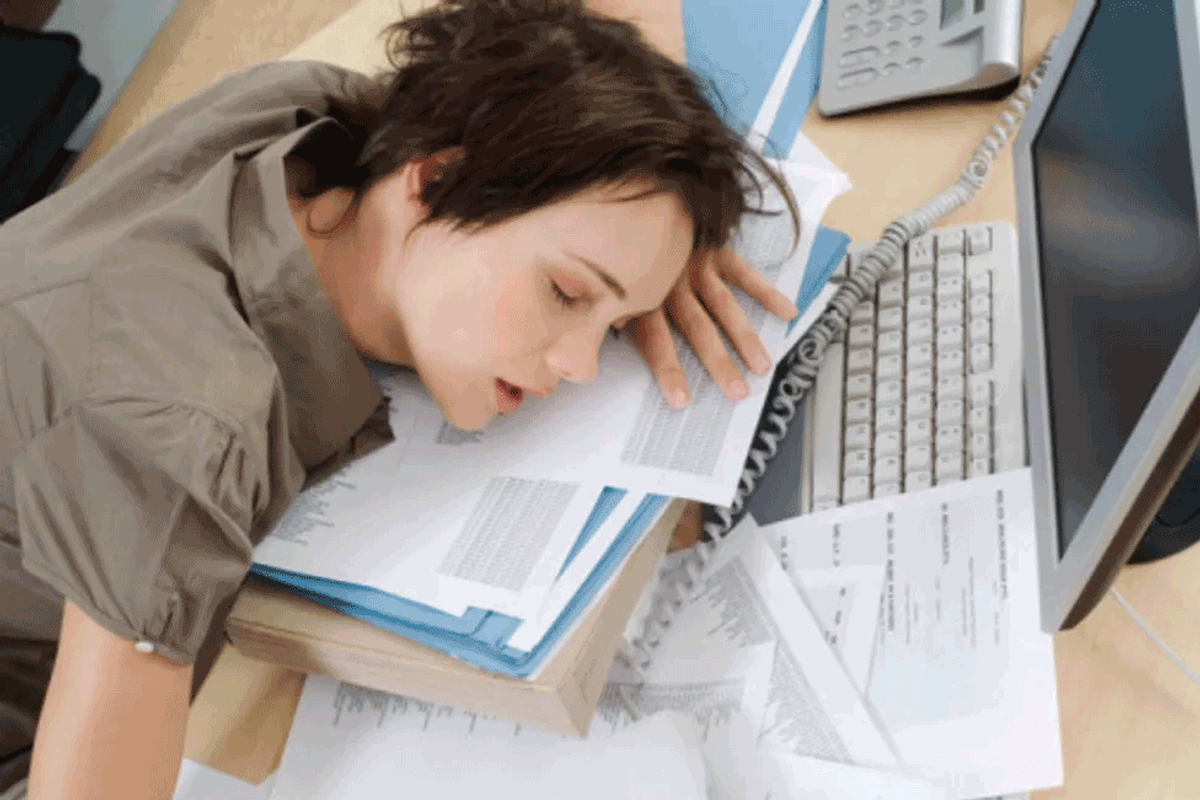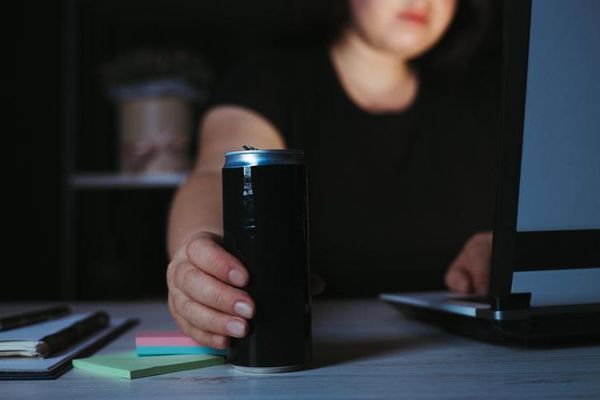Are you tired of being tired all the time? Raring to go but unable to move very far? There may be forces at work that are putting undue stress on your body, zapping you of any spare energy and sending your motivation and enthusiasm into a downward spiral. Don't panic-the reason might be right in front of you.
Take a look below; maybe you'll recognize yourself in one or some of the possibilities. If so, that's one step closer to taking back your energy.
Examine Your Lifestyle.
Ask yourself these three questions. How's my:
1. Eating. Is your diet healthy and balanced, with a good variety of fruits, vegetables and lean protein? Or are you relying way too much on sweets and caffeine? If so, you may be playing seesaw with your blood sugar levels, causing them to move up and down too frequently, only leaving you more exhausted. Maybe you're dieting and not eating enough: without proper fuel, your body cannot operate at its peak.
READ: 10 Sneaky Ways to Get More Fruits and Veggies in Your Diet
2. Exercising. Too tired to exercise ... but we're telling you to do it? What's up with that? Well, it's simple--exercise actually gives you more energy. Studies show that sedentary people who begin an exercise program feel much less tired than those who stay inactive.
READ: No More Excuses! Five Easy Ways to Find the Motivation to Exercise
3. Sleeping. It's not only about getting enough sleep (7-8 hours a night for most healthy adults), it's also about the quality of your sleep. A snoring partner, anxiety, sleep apnea, a too-hot room--these are all sleep-stealers. The sooner you address the problem for your less-than-stellar sleep, the sooner you'll be on your way to more energy.
Examine the State of Your Health.
Could it be:
1. Infection. Things like chronic sinus infections, mononucleosis, hepatitis, influenza (flu) can all easily zap your energy by putting your immune system into battle mode.
2. Dehydration. Even mild dehydration can cause your energy levels to dip. A recent Canadian study found this to be the case in subjects who lost just 2 percent of the water stored in their tissues; their energy level plummeted by as much as 30 percent. Without proper hydration, your brain cells have more trouble communicating. Both your blood volume and blood pressure can dip, slowing the flow of nutrients and oxygen to your tissues.
3. Thyroid problems. Thyroid disease tends to affect more women than men (one in eight will develop a disorder at some point in her life), but women tend to overlook their symptoms. In fact, more than half of all thyroid conditions remain undiagnosed. A thyroid that doesn't work properly can, among other things, make you feel sluggish and achy. A blood test for levels of TSH (thyroid stimulating hormone) may be all it takes to diagnose the problem.
MORE: Thyroid Disorders
4. Anemia. It's one of the leading causes of fatigue in women, and can occur when your blood doesn't have enough hemoglobin or red blood cells (or both) to transport the oxygen from your lungs to the rest of your body. Heavy menstrual bleeding, a poor diet, heredity, ulcers or some serious diseases may be responsible for this condition. Depending on the cause, anemia may be treated with iron supplements, diet or drugs that stimulate the production of red cells in the bone marrow.
Examine Other Things You Do.
Do you:
1. Feel mentally out of sorts? Feeling sad, stressed or anxious can zap your energy and make you feel drained. It may also make it difficult to fall or stay asleep.
2. Take medication?
Certain medications, like diuretics, statins or those that treat blood pressure, depression, anxiety, coughs, colds and pain may cause sleepiness.
3. Laugh enough? Studies back up the popular notion that laughing is good for your health, but what does that have to do with fatigue? Laughing is a wonderful stress-reducer, and, if you get rid of stress, you can root out one of the possible fatigue-triggers (see item 1, above).







